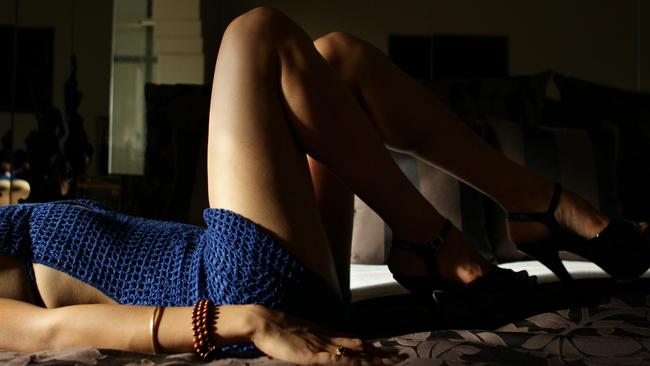Residents complain to councils as sex worker numbers increase
BROTHELS have invaded every metropolitan council — triggering increasing complaints by angry residents as a parliamentary committee investigates the decriminalisation of the sex industry.

SA News
Don't miss out on the headlines from SA News. Followed categories will be added to My News.
BROTHELS have been established in every Adelaide council area, triggering increasing complaints by angry residents as a parliamentary committee investigates the decriminalisation of the sex industry.
Complaints include condoms and other “unsavoury items” found near a school, a Year 10 student stealing money from his mother’s handbag after being propositioned by a prostitute, and a man being “bullied” by two women to pay for illicit sex at what he thought was a massage parlour.
The complaints, from metropolitan council documents obtained under Freedom of Information laws, show much of Adelaide’s sex industry operates throughout the affluent suburbs, including Vale Park, Norwood and Firle.
The Advertiser has been told there are 120-150 brothels across Adelaide. However, the figures are disputed by some in the sex industry, who says the number is hard to define as many sex workers operate individually or from temporary locations.
The complaints relate to about 88 alleged brothels in Adelaide’s 17 council areas. The most reported establishments in the past three years are in West Torrens (18) and Charles Sturt (14).
Others councils may have higher numbers of brothels but were not mentioned in the complaints.
The number was about 50 in 2011 – when sex worker advocates estimated there were about 100 brothels in Adelaide.
Prostitution is not illegal in South Australia, but all activity surrounding it is, such as being on premises with prostitutes, running a brothel and living off the earnings of prostitution.
A select committee investigating the potential decriminalisation of sex work is expected to report this year.
Local Government Association president Dave Burgess said councils could only regulate illegal land use, not the running of brothels.
But Family First state MP Dennis Hood said asking someone to change the development status of their property didn’t address residents’ concerns or fix the problem.
“People don’t want this type of activity going on near their homes, schools or businesses, and councils need to be sure that the law is complied with and apparent breaches are reported to police,” he said.
“Legalisation or further relaxation of prostitution laws ... will simply make a problem that is difficult into one that is completely out of control.”
Sex Industry Network manager Sharon Jennings said the complaints were unsubstantiated allegations.
“Decriminalising our industry would result in sex work premises being managed like any other business, which would involve requirements to comply with council, industrial and workplace health and safety regulations,” she said.
She said there were 1500-2000 sex workers in SA at any given time, so 88 allegations represented a complaint level of less than 5 per cent.
Sex workers will rally for decriminalisation outside Parliament House on June 2.
Should prostitution be decriminalised? Have your say below.


